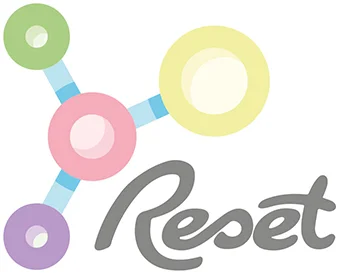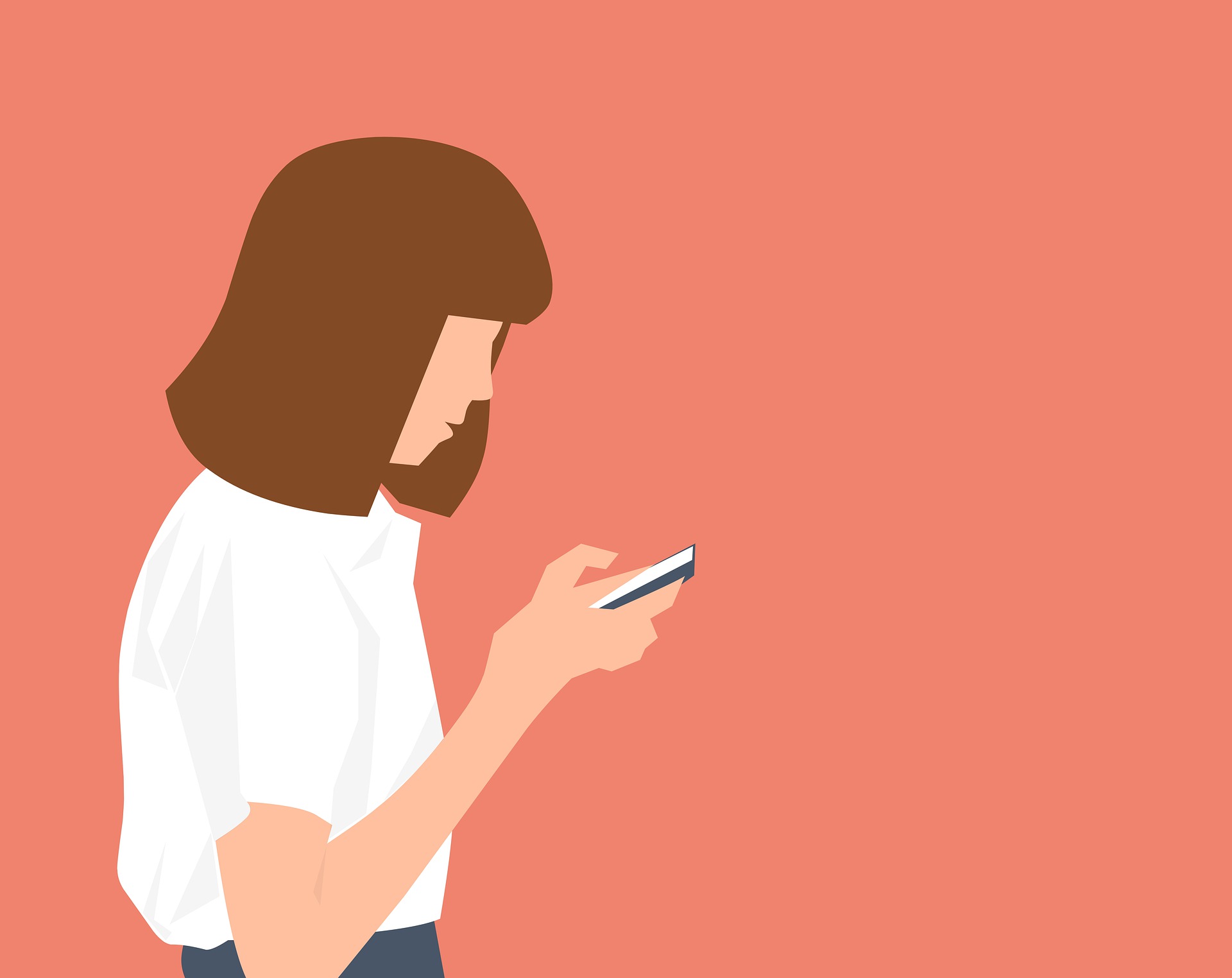Do you need a social media detox? Social media is currently a hot topic because of its impact on mental health. While the negative effects that social media have on our thoughts and behaviours are real and true, so can be the positives. I believe that being aware of this paradox we can consciously take ownership of our social media usage and use it to our advantage. Therefore, social media can be your servant and not your master!
It’s very hard to ignore that as 21st century humans most of us own mobile phones and other
devices that can easily hold governing control over our thoughts and behaviours. From the moment we wake up until the moment we go to bed, applications like Facebook, Instagram, Twitter, Snap Chat etc are funnelling information into our brains like rivers running into the sea, it never stops.
You might be in a waiting room, on the toilet (yes, the toilet), cooking dinner or shopping, and there it is. Its your plastic device with a shiny glass front, a suitably personalised case and blue light screen grabbing your attention while you intermittently discount the world around you. I for one cannot deny that I sit here writing this blog and I have my mobile phone at my side, which I have checked at least four times within the last ten minutes.
‘Nomophobia’ is the fear of not having your phone by your side. This is an actual thing!
With anything there can be positives and negatives depending on the way we look at it, and most of the time both perspectives can be absolutely right. However if you feel that social media is taking over your life you may consider a social media detox.
Social Notifications
Applications are designed to harness our physiology to keep us spending more time on a particular platform. A bit like the car salesman wants to keep you happy in the show room before your buy an expensive car that you probably don’t need anyway.
Our human chemical reward system, which is designed to motivate us to complete tasks and keep progressing forward, is arguably exploited by apps. Dopamine and Serotonin are created when we receive notifications and new pieces of information. This feels great when we get a message to say our parcel will be delivered soon or when we discover that our friend has liked our photo of last night’s dinner on Instagram. So much so that when new information is sparse, we create anxiety via the chemical cortisol which makes us feel on edge. Because of this we obsessively check for new information and keep searching for that next feel-good hit.
Even those wiggly dots that suggest that your recipient is replying to your message is keeping you hanging on.
If we are living in a cycle of behaviour that keeps us checking for new digital information, this sacrifices our attention to daily life affecting our focus on the task in hand. Have you ever used an app for a recipe and found you were distracted by a notification and then realised the pasta is boiling over? This is more commonly recognised as ‘the scroll hole’. As humans we can never consciously multitask so every time, we check our devices we lose focus and productivity as our brain energy is zapped due to neural pathways shutting down and firing up again.
Social Media Detox Top Tip – Turn off notifications and banners
Let’s start by removing the distractions, turning off the notifications and banners means that we are not immediately alerted to the update. It’s great to have a plan in place to ease any initial anxiety by deciding to check apps once or maybe three times a day depending on your personal preference. That way you are back in control, not the apps.
Love Heart emoji
Not only does social media affect our productivity but also our levels of intimacy and connection diminishes, affecting our relationships with the physical people around us. We are less likely to strike up new conversations in the wating room if our heads are bowed down into our phones and we are less likely to establish important trusting relationships with co-workers if we are spending our dinner hour lost in the scroll hole. Positive interaction with loved ones and even our pets is one of the most important positive parameters we need for mentally healthy behaviour and if this is negatively affected so is our overall mental wellbeing.
Social Media Dextox Top Tip – Add a screen time timer to apps
Instead of racking up hours of screen time whilst getting your daily social dose of Instagram reals or Facebook stories, there is a function on most modern phones to add a screen time reminder. This enables you to monitor if you are overspending you preferred daily allowance of digital socialising. The ability to control your time with the screen really benefits your immediate relationships by being more present and in the moment. Not to mention not having to clean up over spilled pasta.
‘You OK hun?’
Going deeper into the dark valleys of social media and virtual connection, passive aggressive cultures also create negative stress. Direct and indirect posts towards others are a form a bullying. Gone are the days where bullying took not just at place at school or in the workplace, but we can now be digitally attacked in our homes too.
Cancel culture on social media is another negative outlet for anger and stress, where opinions are turned into ‘you are wrong, and I am right, stut up’ rather than discourse and healthy debates. Personality and intention can be interpreted very differently through text rather than through face-to-face discussion, consequently warmth and respect can be easily lost in the digital world.
Social Media Detox Top Tip – Social cleanse
Having a social clear out can be cleansing for the mind and the pay back will have beneficial effects on your digital experience. Unfollow or unfriend the ‘Drama Lamas’ and stay as far away from negative site as possible. You will instinctively know the ones that create, anxiety or stress.
We are the average of the 5 people we spend the most time with, according to American businessman and self-made millionaire Jim Rohn. Knowing this we can be consciously aware of the people we spend time with online and how that is affecting our thoughts and feelings.
Another way of combating the drama is to follow people or sites which create a warm and feel-good content. There are plenty of ‘Happy news’, positivity sites and creative humans out there to warm your cockles.
Online Loneliness
As well as being excluded from social groups or not being tagged in a GIF, we might come across vague posts of turmoil resulting in ‘you ok hun?….DM me’. This creates a subculture of exclusion as the follower is left wondering what has happened and a sense of being unworthy or further information.
We are a social species. Being left out of the tribe or in modern terms being left out of the ‘WhatsApp group’ for example, is a sure signal for stress especially in teenagers. The developmental agenda for teenagers is to find where we ‘belong’ not just with our caregivers but in our community too. Social love and belonging are required not only strengthen good mental wellbeing it’s a human necessity for survival.
Social Media Detox Top Tip – Connect face to face
Part of being a social species and having a true sense of belonging requires certain level of sensory input. Touch and even smell which are not available digitally, enhance our social experiences and help to create emotional bonds in the brain. Being around people as much as possible is a great way of increasing our sense of security, love and belonging.
The ‘#Insta’ life
Comparison is not an actual emotion but when we compare, we often feel emotions which detaches us from others, rather than connecting us. We feel emotions such as shame, schadenfreude – the happiness from others misfortune, disappointment, jealousy & envy, hubris – excessive pride wanting to dominate, disconnection, the list goes on. When we use comparison it doesn’t always make us feel bad, it can make us feel good too, but ultimately it disconnects us and in the long run this isn’t healthy for our overall wellbeing.
Comparison is the wanting to fit in but also to stand out too, ‘Be like everyone else, but better’.
As human beings are ware designed to live in a tribe of maximum 150 people but in the expansive world of social media, we have literally millions of people at our fingertips. We naturally and neurobiochemical default to find our position within the tribe. When it comes to our digital social tribe the social hierarchy can be overwhelming.
The great thing is that we can be more emotionally aware of this ability we have to rank ourselves against others, then we can take control of it and stay connected. By ‘staying in our own lane’ and making a conscious effort to recognise and change those thought patterns.
We get to choose if we want to stay focused on ourselves or not, it’s not always easy because that Darwinian theory suggests that our primitive brain is hard wired to survive and get ourselves to the top of the pack. But we now know have the intellectual new brain at the front that helps us to realise that positive physical and emotional connection with other human being is what we really need in the world we live in today.
Social Media Detox Top Tip – Be your own champion
Firstly start to think about or notice how you might be comparing yourself to others and how that might make you feel. Then it would be wise to think about how you could make changes to connect better with others. If someone is doing well, congratulate them and share their joy, use their excitement and achievements to inspire you. You may notice someone isn’t doing as well, how could you help & support them? Maybe you are not doing as well, how can you ask for help and support? Self-compassion is essential to override comparison. Writing down your achievements and skills is a great way to highlight how amazing you are!
Contact me for help and support if you are struggling with the impact of social media on your mental health https://reset-hypnotherapy.co.uk/contact/
Find me on Facebook https://www.facebook.com/resethypnotherapyspalding
Find me on YouTube https://www.youtube.com/channel/UCTKNNHqDayEPF6ELcPwI2YA
Find me on LinkedIn https://www.linkedin.com/in/emma-rose-reset-hypnotherapy/

